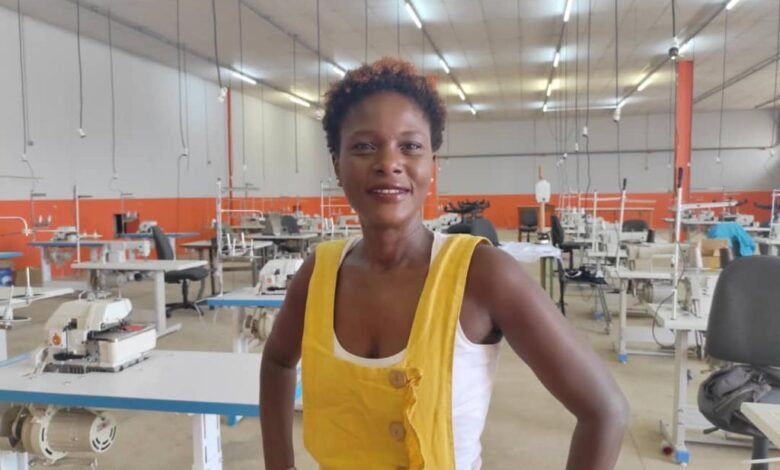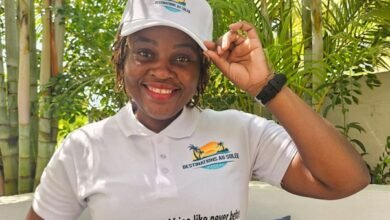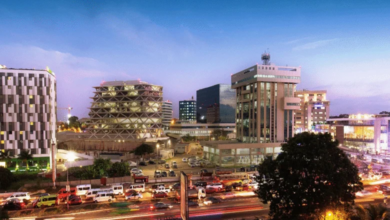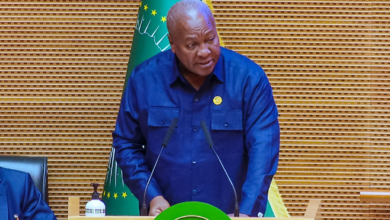Fatou Ndiaye : “I have revived the textile industry in my village of Louga to combat illegal youth immigration”
Last autumn, French-Senegalese Fatou Ndiaye left Paris and quit her job as an engineer to return to her home village of Louga in Senegal. Her aim was to revive Sotexka, now called Pitex, the region's main textile factory. At the same time, she wanted to give new life to a strategic sector.

By Merieme Alaoui
Fatou Ndiaye was inspired by a report about migrants adrift near the Gare du Nord in Paris. Accused of trafficking in crack cocaine, they were said to have come straight from Louga in Senegal, a village on the Mauritanian border where the Parisian engineer is from. « How did these young people end up in such misery in Paris? I was outraged, shocked, I didn’t want anyone to talk about us, about my village, in that way! Back in her homeland, the entrepreneur with a passion for fashion had the crazy idea of taking over the region’s main textile factory: Sotexka, renamed Pitex. Her ambition was to create an industrial textile platform.
Unaccompanied, she sold her Parisian flat and embarked on the adventure with childhood friends. She became the owner of a three-hectare factory with a 6,000-square-metre production hall. It used to be one of the economic lungs of the village. Its closure, after several failed attempts to revive it, was a hard blow for the inhabitants. Barely six months after Fatou Ndiaye took over, 30 workers are already busy behind the sewing machines. Her obsession is to revive employment and create new jobs. « We are victims of three scourges: unemployment, illegal immigration and climate change. I have revived the textile industry in my village, Louga, to combat the illegal immigration of young people.”
« We recycle the fabrics and, with the help of the mayors, we are planning to develop solar fields to power the factory »
The woman, who has spent nights bringing this project to life while working as an engineer in Paris, has fought great battles at a very young age. Born in Louga, she comes from the Fulani tribe and, like most of the women in her village, was promised in marriage at a very young age. « But I wanted to study! School was a way out for me. I had to be the best. She received a state scholarship that rewards the most talented students in the country. With her baccalaureate, she arrived in France at the top of her class and graduated from the Cesi engineering school. She developed her career in human resources and the management of economic, social and commercial performance. She was head of the SNCF Group’s HR University, then in charge of CSR training and development, and deputy director of the SNCF Impact Lab.
After years of hard work in search of meaning, she wants to give life to her entrepreneurial desire. In 2019, she launched Kopar Express in Dakar, a fintech services company (crowdfunding, bill payment, phone search, etc.). Before that, she set her sights on the textile factory in Louga. To succeed where others have failed, Fatou Ndiaye, the ecologist who distributes her business card digitally, has based her project on a set of values. She is defending a socially responsible model that does not exploit workers, but provides them with training and support.
This homecoming is based on a carefully thought-out plan based on three cardinal points. Firstly, in order to be economically viable, the project was not to be opened up to the outside world, but to target local markets such as army uniforms, but above all school uniforms and sportswear. In this context, a strategic partnership has been established with the local football clubs to dress all their players.
“When we talk about industry in Africa, we think of the giants like Nestlé and Total, but it is also these small structures that are born from nothing”
It is also a way to integrate the villagers so that the company has a positive social impact on its environment. « We believe in it! A few weeks ago, a young woman walked 15 km to give me her resume! Finally, the project must embody an environmentally sustainable model. « We recycle fabrics and, with the help of the mayors, we are planning to develop solar fields to power the factory. To reach the potential of creating 40,000 jobs, Fatou Ndiaye has no shortage of ambition or ideas. A winning combination, as her project has received funding and support from the Deutsche Gesellschaft für Internationale Zusammenarbeit (GIZ).
Senegal has a long tradition in the textile industry, which has been plagued by Chinese competition for decades. With her feet firmly on the ground, but brimming with ambition, Fatou Ndiaye has launched her own sportswear brand: « Fitraining » (fit means courage in Wolof). The fashion enthusiast has also launched « Awa, » a womenswear brand that blends traditional Senegalese and working girl styles. She cites the example of a boubou with a cell phone pocket that can easily be worn over a white blouse. « I was inspired by my lifestyle, my desires and my culture between the North and the South, » she says, more determined than ever.
« When we talk about industry in Africa, we think of giants like Nestlé and Total, but it is also these small structures that are born from nothing. It’s mainly a conviction, a motivation and three pennies. But they can go a long way!






